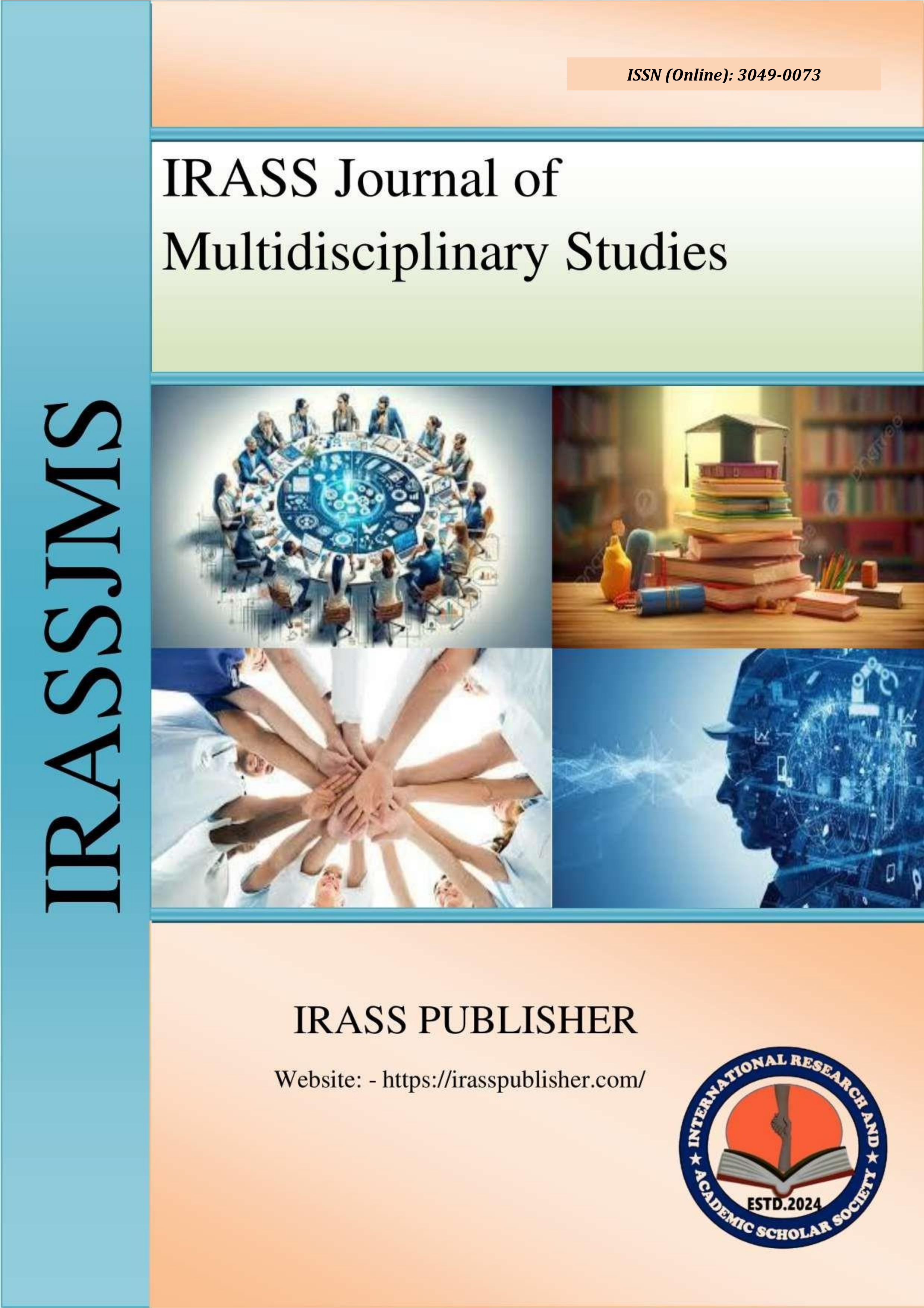THE LIVED EXPERIENCES OF RURAL COMMUNITIES AS VICTIMS OF CRIME AND THEIR ENGAGEMENT WITH FORMAL AND INFORMAL JUSTICE SYSTEMS
Sr No:
Page No:
1-17
Language:
English
Authors:
Dr. John Motsamai Modise*
Received:
2025-05-16
Accepted:
2025-05-30
Published Date:
2025-06-02
GoogleScholar:
Click here
Abstract:
This article examines rural crime victimisation and the engagement of rural
communities with both formal and informal justice systems in South Africa, offering insights
into the unique challenges faced by rural populations in accessing justice. It explores how crime
manifests in rural contexts, highlighting specific issues such as livestock theft, farm attacks, and
the role of traditional justice systems. By integrating criminological theories such as Social
Disorganisation Theory and Restorative Justice, the study explores how these frameworks apply
to rural crime dynamics. The article also offers practical recommendations for improving rural
policing, enhancing police-community relations, and integrating informal justice practices with
formal law enforcement. This study provides valuable implications for policy, law enforcement,
and criminology, contributing to a broader understanding of rural crime and justice in Africa.
The purpose of this study is to critically examine the nature of rural crime in South Africa and to
explore the role of both formal and informal justice systems in addressing the needs of rural
communities. The study aims to provide a comprehensive understanding of how rural crime
differs from urban crime, how rural communities interact with justice systems, and to offer
practical recommendations for improving crime prevention and justice delivery in rural areas.
Rural communities in South Africa face unique challenges in both experiencing and addressing
crime. Limited access to formal justice systems, combined with the prevalence of informal
justice practices, creates a complex landscape for crime prevention and resolution. Despite the
significance of rural crime, there is a notable lack of comprehensive studies that explore rural
crime dynamics and the integration of both formal and informal justice mechanisms. This
research seeks to address the gap in understanding how rural crime is experienced and how rural
communities engage with justice systems, which is essential for developing effective crime
prevention strategies. The main topic of the study is the nature of rural crime in South Africa,
with a focus on victimisation, community engagement with justice systems, and the role of both
formal (state-led) and informal (community-based) justice systems. The article addresses the
complexity of rural crime and how community members navigate between these two justice
systems, proposing recommendations to improve safety and justice delivery in rural settings.
Rural crime presents unique characteristics, including livestock theft, farm attacks, and crimes
related to limited resources. These crimes often go underreported or inadequately addressed due
to geographical and socio-economic factors. Informal justice systems, such as traditional courts
and community dispute resolutions, play a significant role in rural crime resolution. These
systems often operate parallel to formal legal institutions but can offer culturally appropriate and
accessible methods of justice. Rural communities face barriers to accessing formal justice
mechanisms, such as police stations that are often distant and under-resourced, as well as a lack
of trust in formal justice institutions. A more effective approach to rural crime requires the
integration of informal justice practices with formal law enforcement. This approach would
provide a more culturally sensitive and locally accepted model of crime prevention and
resolution.Strengthening the relationship between rural communities and law enforcement can
improve crime reporting, foster trust, and enhance overall crime prevention efforts. The study
employs a qualitative research design, using in-depth interviews, case studies, and field
observations to collect data from rural communities, law enforcement officers, and traditional
justice practitioners. The research also incorporates an analysis of secondary data, such as crime
statistics and policy documents, to support the findings. A combination of thematic analysis and
case study analysis is used to examine how rural crime is experienced and the effectiveness of
both formal and informal justice mechanisms in addressing these issues. This study offers
several important contributions to the field of criminology, particularly in the context of rural
crime in Africa: Policy Implications: The findings provide policymakers with insights on how to
develop crime prevention strategies that are tailored to rural communities and integrate both
formal and informal justice systems. Practical Recommendations: The study provides actionable
recommendations for improving rural policing, enhancing police-community relations, and
promoting restorative justice practices. Academic Contribution: The article contributes to the
Vol-2, Iss-6 (June-2025)
2
emerging field of rural criminology in Africa, offering a model for further research on rural
crime in other African nations. Social Impact: By addressing the complexities of rural crime and
justice, the study advocates for a more inclusive approach that respects local traditions and
enhances access to justice for rural populations. The study concludes that rural crime in South
Africa requires a multifaceted approach that addresses both formal and informal justice systems.
The integration of traditional and modern justice mechanisms, alongside improved community
engagement with law enforcement, offers the best prospects for effective crime prevention and
justice delivery in rural areas. This approach not only improves access to justice but also
strengthens the legitimacy of the criminal justice system in rural communities. The findings
highlight the need for policies and strategies that are sensitive to the unique challenges faced by
rural populations, paving the way for more effective and sustainable crime prevention solutions.
Ultimately, this research contributes to a broader understanding of rural crime and justice in
Africa, with implications for both academic research and practical crime policy
Keywords:
Rural Crime, Victimisation, Formal Justice Systems, Informal Justice Systems, Community-Based Justice, Restorative Justice, Criminology in Africa, Social Disorganisation, Rural Policing, Traditional Justice, Livestock Theft, Farm Attacks, Crime Prevention, Rural Communities, Criminal Justice Reform, Police-Community Relations.
Journal: IRASS Journal of Multidisciplinary Studies
ISSN(Online): 3049-0073
Publisher: IRASS Publisher
Frequency:
Monthly
Language:
English

